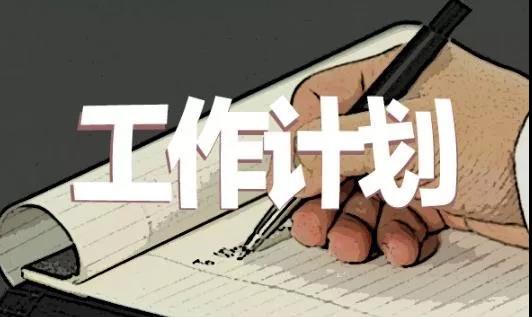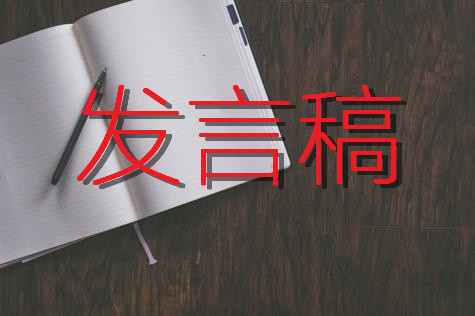下面是小编为大家整理的2023年ted演讲稿范本8篇【完整版】,供大家参考。

在英语学习的过程,大家想要尽可能的提高英语水平的话,进行英语演讲不仅是对自己的一种气场胆量的锻炼,同时也是对自己英语水平提高的好办法,为大家精心整理了ted演讲稿范文【优秀8篇】,在大家参照的同时,也可以分享一下给您最好的朋友。
经典TED英语演讲稿 篇一
When you are a kid, you get asked this one particular question a lot, it really gets kind of annoying. What do you want to be when you grow up? Now, adults are hoping for answers like, I want to be an astronaut or I want to be a neurosurgeon, you’re adults in your imaginations.
Kids, they’re most likely to answer with pro-skateboarder, surfer or minecraft player. I asked my little brother, and he said, seriously dude, I’m 10, I have no idea, probably a pro-skier, let’s go get some ice cream.
See, us kids are going to answer something we’re stoked on, what we think is cool, what we have experience with, and that’s typically the opposite of what adults want to hear.
But if you ask a little kid, sometimes you’ll get the best answer, something so simple, so obvious and really profound. When I grow up, I want to be happy.
For me, when I grow up, I want to continue to be happy like I am now. I’m stoked to be here at TedEx, I mean, I’ve been watching Ted videos for as long as I can remember, but I never thought I’d make it on the stage here so soon. I mean, I just became a teenager, and like most teenage boys, I spend most of my time wondering, how did my room get so messy all on its own.
Did I take a shower today? And the most perplexing of all, how do I get girls to like me? Neurosciences say that the teenage brain is pretty weird, our prefrontal cortex is underdeveloped, but we actually have more neurons than adults, which is why we can be so creative, and impulsive and moody and get bummed out.
But what bums me out is to know that, a lot of kids today are just wishing to be happy, to be healthy, to be safe, not bullied, and be loved for who they are. So it seems to me when adults say, what do you want to be when you grow up? They just assume that you’ll automatically be happy and healthy.
Well, maybe that’s not the case, go to school, go to college, get a job, get married, boom, then you’ll be happy, right? You don’t seem to make learning how to be happy and healthy a priority in our schools, it’s separate from schools. And for some kids, it doesn’t exists at all? But what if we didn’t make it separate? What if we based education on the study and practice of being happy and healthy, because that’s what it is, a practice, and a simple practice at that?
Education is important, but why is being happy and healthy not considered education, I just don’t get it. So I’ve been studying the science of being happy and healthy. It really comes down to practicing these eight things. Exercise, diet and nutrition, time in nature, contribution, service to others, relationships, recreation, relaxation and stress management, and religious or spiritual involvement, yes, got that one.
So these eight things come from Dr. Roger Walsh, he calls them Therapeutic Lifestyle Changes or TLCs for short. He is a scientist that studies how to be happy and healthy. In researching this talk, I got a chance to ask him a few questions like; do you think that our schools today are making these eight TLCs a priority? His response was no surprise, it was essentially no. But he did say that many people do try to get this kind of education outside of the traditional arena, through reading and practices such as meditation or yoga.
But what I thought was his best response was that, much of education is oriented for better or worse towards making a living rather than making a life.
In 2006, Sir Ken Robinson gave the most popular Ted talk of all time. Schools kill creativity. His message is that creativity is as important as literacy, and we should treat it with the same status.
A lot of parents watched those videos, some of those parents like mine counted it as one of the reasons they felt confident to pull their kids from traditional school to try something different. I realized I’m part of this small, but growing revolution of kids who are going about their education differently, and you know what? It freaks a lot of people out.
Even though I was only nine, when my parents pulled me out of the school system, I can still remember my mom being in tears when some of her friends told her she was crazy and it was a stupid idea.
Looking back, I’m thankful she didn’t cave to peer pressure, and I think she is too. So, out of the 200 million people that have watched Sir Ken Robinson’s talk, why aren’t there more kids like me out there?
Shane McConkey is my hero. I loved him because he was the world’s best skier. But then, one day I realized what I really loved about Shane, he was a hacker. Not a computer hacker, he hacked skiing. His creativity and inventions made skiing what it is today, and why I love to ski. A lot of people think of hackers as geeky computer nerds who live in their parent’s basement and spread computer viruses, but I don’t see it that way.
ted中英文演讲稿 篇二
There is a wisdom called to let go, there is a kind of learning is called choice, there is a kind of victory is called a successful selection and composition of 500 15 choice and successful composition 500 words article 15. Some give up, choose more suitable for their goals, may success closer.
Materials thinkers in stork say; "The ability of survival needs more than one! Rabbit cannot learn swimming in school make hole, squirrel learn swimming in school to climb trees!" I think this is right. The swimming may really not suitable for a rabbit if give up swimming, choose to make hole maybe it could be a hole experts; Pine swim, climb a tree, I believe it will do very well.
Ancient find today, up and down five thousand years, nine miles, how many great experience of success is not to give up, to choose process. Tao yuanming abandoned him, not for the bureau count, chose seclusion, will become the place in landscape pastoral poet; Lin xiangru's abandoned their own self-interest, chose the interests of the country, and become a much-told tale; Su Wu give up splendor, chose to remain national moral integrity, so he never go down in history; Romantic poet li bai gave up at the king's officer, chose the grizzled troubadour, then write a lot of historic tion, became the "god"。
经典TED英语演讲稿 篇三
In 20xx — not so long ago — a professor who was then at Columbia University took that case and made it [Howard] Roizen. And he gave the case out, both of them, to two groups of students. He changed exactly one word: "Heidi" to "Howard." But that one word made a really big difference. He then surveyed the students, and the good news was the students, both men and women, thought Heidi and Howard were equally competent, and that's good.The bad news was that everyone liked Howard. He's a great guy. You want to work for him. You want to spend the day fishing with him. But Heidi? Not so sure. She's a little out for herself. She's a little political.You're not sure you'd want to work for her. This is the complication. We have to tell our daughters and our colleagues, we have to tell ourselves to believe we got the A, to reach for the promotion, to sit at the table, and we have to do it in a world where, for them, there are sacrifices they will make for that, even though for their brothers, there are not. The saddest thing about all of this is that it's really hard to remember this. And I'm about to tell a story which is truly embarrassing for me, but I think important.
TED英语演讲稿带翻译 篇四
When Dorothy was a little girl, she wasfascinated by her goldfish. Her father explained to her that fish swim byquickly wagging their tails to propel themselves through the water. Withouthesitation, little Dorothy responded, "Yes, Daddy, and fish swim backwardsby wagging their heads."
当多萝西还是一个小女孩的时候,她被她的金鱼迷住了。她的父亲向她解释,鱼是通过快速摇尾推动自己在水中前进。毫无犹豫地,小多萝西回答道,“是的,爸爸,而且鱼会通过摇头来后退。”
In her mind, it was a fact as true as anyother. Fish swim backwards by wagging their heads. She believed it.
在她的心里,这是一个确切的事实。鱼通过摇头来后退。她坚信如此。
Our lives are full of fish swimmingbackwards. We make assumptions and faulty leaps of logic. We harbor bias. Weknow that we are right, and they are wrong. We fear the worst. We strive forunattainable perfection. We tell ourselves what we can and cannot do. In ourminds, fish swim by in reverse frantically wagging their heads and we donteven notice them.
我们的生活中充满着倒游的鱼。我们制造假设和错误跳跃的逻辑。我们心怀偏见。我们知道我们是对的,而他们是错的。我们害怕最糟糕的。我们力求无法获得的完美。我们告诉自己什么是我们能做的和不能做的。在我们心里,鱼是通过往相反方向疯狂摇头来游泳的,而我们甚至不曾察觉过它们。
Im going to tell you five facts aboutmyself. One fact is not true. One: I graduated from Harvard at 19 with anhonors degree in mathematics. Two: I currently run a construction company inOrlando. Three: I starred on a television sitcom. Four: I lost my sight to arare genetic eye disease. Five: I served as a law clerk to two US Supreme Courtjustices. Which fact is not true? Actually, theyre all true. Yeah. Theyre alltrue.
我想告诉你们五件关于我的事实。其中有一件不是真的。第一:我19岁的时候以数学荣誉学士学位毕业于哈佛大学。第二:我现在在奥兰多经营着一家建筑公司。第三:我主演过一部电视情景剧。第四:我因为患上一种罕有的遗传性眼疾而失去了视力。第五:我曾经给两位美国最高法院的法官当过法律助手。哪一个不是真的呢?事实上,它们都是真的。是的,它们都是真的"。
At this point, most people really only careabout the television show.
这时候,大部分人其实都只关心那部电视剧。
I know this from experience. OK, so theshow was NBCs "Saved by the Bell: The New Class." And I playedWeasel Wyzell, who was the sort of dorky, nerdy character on the show, whichmade it a very major acting challenge for me as a 13-year-old boy.
这是经验告诉我的。好吧,那部电视剧是NBC的“SavedbytheBell:TheNewClass."而我饰演了WeaselWyzell,一个在剧中带点笨拙书呆子性格的角色,对于13岁的我来说,这是一个很重大的演出挑战。
Now, did you struggle with number four, myblindness? Why is that? We make assumptions about so-called disabilities. As ablind man, I confront others incorrect assumptions about my abilities everyday. My point today is not about my blindness, however. Its about my blind taught me to live my life eyes wide open. It taught me to spotthose backwards-swimming fish that our minds create. Going blind cast them intofocus.
现在,你是否纠结于第四个事实,我的失明?为什么会这样呢?我们对所谓的残疾做出一些假设。作为盲人,我每天都面对别人对我能力的错误假设。然而,我今天的重点不在于我的失明。而是在于我的视野。失明教会我用开阔的眼界去生活。它教会我去发现那些倒游的鱼,我们内心创造出来的鱼。失明使它们变成了焦点。
What does it feel like to see? Itsimmediate and passive. You open your eyes and theres the world. Seeing isbelieving. Sight is truth. Right? Well, thats what I thought.
看得见是怎么样的一种感觉?是即时并且被动的。你睁开双眼,世界就在你眼前。看见什么相信什么。眼见为实。对吧?好吧,我当初是这么想的。
Then, from age 12 to 25, my retinasprogressively deteriorated. My sight became an increasingly bizarre carnivalfunhouse hall of mirrors and illusions. The salesperson I was relieved to spotin a store was really a mannequin. Reaching down to wash my hands, I suddenlysaw it was a urinal I was touching, not a sink, when my fingers felt its trueshape.
接着,从12岁到15岁,我的视网膜逐渐衰弱。我的视像变成了愈加奇异的嘉年华游乐场里的哈哈镜。我在商店里好不容易发现的销售员实际上是一个人体模型。俯下身去洗手,当我的手指感受到它的真实形状,我意识到我去触摸的是小便池,而不是洗手池。
A friend described the photograph in my hand, and only then I could seethe image depicted. Objects appeared, morphed and disappeared in my reality. Itwas difficult and exhausting to see. I pieced together fragmented, transitoryimages, consciously analyzed the clues, searched for some logic in my crumblingkaleidoscope, until I saw nothing at all.
一位朋友向我描述我手中的照片,只有在那时候我才能明白图像描画了些什么。物体在我的现实中出现、变形和消失。看见成为了一件困难的使我筋疲力尽的事情。我把支离破碎的、片刻的图像拼接起来,凭感觉分析线索,在我破碎的万花筒中寻找符合逻辑的对应,直到我什么都看不见。
I learned that what we see is not universaltruth. It is not objective reality. What we see is a unique, personal, virtualreality that is masterfully constructed by our brain.
我认识到我们所看到的并不即是普遍真理。并不是客观现实。我们所看到的是独一无二的虚拟现实,它是由我们的大脑巧妙地构造出来的。
Let me explain with a bit of amateurneuroscience. Your visual cortex takes up about 30 percent of your brain.Thats compared to approximately eight percent for touch and two to threepercent for hearing. Every second, your eyes can send your visual cortex as manyas two billion pieces of information. The rest of your body can send your brainonly an additional billion. So sight is one third of your brain by volume andcan claim about two thirds of your brains processing resources. Its nosurprise then that the illusion of sight is so compelling. But make no mistakeabout it: sight is an illusion.
请让我以外行的身份解释一遍神经系统学。你的视觉皮层占据了你脑部的大概30%。相比于触觉的8%以及听觉的2-3%。每一秒钟,你的双眼能够向你的视觉皮层传达多达二十亿的信息片段。其余的身体部分加起来也仅能够传达另外的十亿。所以视觉占据了你脑部容量的三分之一并且占用了你脑部中三分之二的信息处理资源。因此意想得到的是视觉幻象是多么的令人信服。但是别误会了:我们所看到的只是一种幻象。
Heres where it gets interesting. To createthe experience of sight, your brain references your conceptual understanding ofthe world, other knowledge, your memories, opinions, emotions, mentalattention. All of these things and far more are linked in your brain to yoursight. These linkages work both ways, and usually occur subconsciously. So for example, what you see impacts how you feel, and the way you feel can literally change what you see.
这是事情变得有趣的地方。为了制造视觉经验,你的大脑参考了你对这个世界的概念性理解,其它知识、你的记忆、看法、情绪和心理关注。所有的这些东西和以及其它的都连结于你的大脑和视觉景象之间。这些连结是双向作用的,并且常常在潜意识中发生。举例子来说,你所看到的会影响到你的感觉,而你的感觉又能够直接改变你所看到的。
Numerous studies demonstrate this. If you are asked toestimate the walking speed of a man in a video, for example, your answer willbe different if youre told to think about cheetahs or turtles. A hill appearssteeper if youve just exercised, and a landmark appears farther away if yourewearing a heavy backpack. We have arrived at a fundamental contradiction.
许多的研究证明了这一点。如果你被要求去估计视频中人物的行走速度,举例来说,在被告知去想着猎豹或者乌龟的情况下,你的答案将会不一样。如果你刚刚运动完,你会感觉山变陡峭了,如果你背着一个很重的背包,眼前的目的地看起来距离更远。我们在这里遇到了一种基本的矛盾。
What you see is a complex mental construction of your own making, but you experienceit passively as a direct representation of the world around you. You createyour own reality, and you believe it. I believed mine until it broke apart. Thedeterioration of my eyes shattered the illusion.
你肉眼所看到的东西是你自己创造的一种复杂的心智建造,但是你被动地经历着它让它作为你周遭世界的一种直接呈现。你创造了属于你自己的现实并且深信着它。我深信于我的现实直到它瓦解了。我双眼的衰退粉碎了这种幻象。
You see, sight is just one way we shape ourreality. We create our own realities in many other ways. Lets take fear asjust one example. Your fears distort your reality. Under the warped logic offear, anything is better than the uncertain. Fear fills the void at all costs,passing off what you dread for what you know, offering up the worst in place ofthe ambiguous, substituting assumption for reason. Psychologists have a greatterm for it: awfulizing.
你看,视觉只是我们认识世界的一种途径。我们可以通过许多其它的方式去创造属于我们自己的现实。让我们来举恐惧作为一个例子。你的恐惧扭曲了你的现实。在扭曲的恐惧逻辑影响下,任何事情都比未知要好。恐惧不惜一切代价填补空白,把你所惧怕的冒充成你所知道的,让最糟糕取代了不明确,使假设代替了原因。心理学家对此有一个很好的术语:往坏处想。
Right? Fear replaces the unknown with theawful. Now, fear is self-realizing. When you face the greatest need to lookoutside yourself and think critically, fear beats a retreat deep inside yourmind, shrinking and distorting your view, drowning your capacity for criticalthought with a flood of disruptive emotions. When you face a compellingopportunity to take action, fear lulls you into inaction, enticing you topassively watch its prophecies fulfill themselves.
对吧?恐惧把未知的替换成了可怕的。现在,恐惧在自我实现着。当你非常迫切的需要去客观看待自己并进行批判性思考的时候,恐惧在你的内心深处打起了退堂鼓,收缩并扭曲你的观点,以洪水般涌现的破坏性情绪淹没你批判思考的能力。当你面对一个极具吸引力的机会去采取行动时,恐惧误导你去无所作为,诱使你被动地看着它的预言一个个实现成真。
When I was diagnosed with my blindingdisease, I knew blindness would ruin my life. Blindness was a death sentencefor my independence. It was the end of achievement for me. Blindness meant Iwould live an unremarkable life, small and sad, and likely alone. I knew it.This was a fiction born of my fears, but I believed it. It was a lie, but itwas my reality, just like those backwards-swimming fish in little Dorothysmind. If I had not confronted the reality of my fear, I would have lived it. Iam certain of that.
当我被诊出患有致盲眼疾时,我料到失明将会毁了我的生活。失明对我的独立能力判了死刑。它是我一生成就的终点。失明意味着我将度过平凡的一生,渺小且凄惨,极有可能孤独终老。我就知道会这样。这是我因为恐惧带来的胡编乱造,但我相信了。它是一个谎言,但它曾是我的现实。就像小多萝西内心那些倒游的鱼一样。如若我不曾面对过我内心恐惧创造出来的现实,我会就那样活着。我很确定。
So how do you live your life eyes wideopen? It is a learned discipline. It can be taught. It can be practiced. I willsummarize very briefly.
所以你们如何去以开阔的眼界生活呢?这是一个需要学习的学科。它能被传授。它能被练习。我简单地总结一下。
Hold yourself accountable for every moment,every thought, every detail. See beyond your fears. Recognize your assumptions.Harness your internal strength. Silence your internal critic. Correct yourmisconceptions about luck and about success. Accept your strengths and yourweaknesses, and understand the difference. Open your hearts to your bountifulblessings.
让自己学会负责,对每一时刻,每个想法,每个细节。超越你内心的恐惧。识别出你所作的假设。展现你内在的能力。消除你内心的批判。修正你对于运气和成功的错误概念。接受自己的长处和短处,并清楚认识它们之间的区别。打开你的心扉去迎接对你满满的祝福。
Your fears, your critics, your heroes, yourvillains -- they are your excuses, rationalizations, shortcuts, justifications,your surrender. They are fictions you perceive as reality. Choose to seethrough them. Choose to let them go. You are the creator of your reality. Withthat empowerment comes complete responsibility.
你的恐惧,你的批判,你的英雄,你的敌人——他们都是你的借口、合理化作用、捷径、辩护、屈服。它们是你错认为现实的小说。尝试选择看穿它们。尝试让它们远离自己。你是自我现实的创造者。伴随这种权利而来的是你需要负起全部的责任。
I chose to step out of fears tunnel intoterrain uncharted and undefined. I chose to build there a blessed life. Farfrom alone, I share my beautiful life with Dorothy, my beautiful wife, with ourtriplets, whom we call the Tripskys, and with the latest addition to thefamily, sweet baby Clementine.
我选择走出恐惧的隧道,步入了未知的领域。我选择在那里构建幸福的人生。远离孤单,我分享我的美好生活,与多萝西,我美丽的妻子,与我们的三胞胎,我们称之为“Tripskys”,还有新添的家庭成员,可爱的宝贝克莱蒙蒂。
What do you fear? What lies do you tellyourself? How do you embellish your truth and write your own fictions? Whatreality are you creating for yourself?
你在害怕什么?你在欺骗自己什么?你是如何修饰自己的真相,编写自己的小说?你在为自己创造着怎么样的现实?
In your career and personal life, in yourrelationships, and in your heart and soul, your backwards-swimming fish do yougreat harm. They exact a toll in missed opportunities and unrealized potential,and they engender insecurity and distrust where you seek fulfillment andconnection. I urge you to search them out.
在你的职业生涯和个人生活中,在你的人际关系中,在你的内心和灵魂中,倒游的鱼给你带来巨大的伤害。它们使你为错失的机会以及尚未实现的潜能付出代价。它们在你寻求满足与联系时引起你的不安以及不信任。我呼吁大家把它们找出来。
Helen Keller said that the only thing worsethan being blind is having sight but no vision. For me, going blind was aprofound blessing, because blindness gave me vision. I hope you can see what Isee.
海伦·凯勒曾说过,唯一比失明更糟糕的是拥有视力,却没有远见。失明对我来说是一种深深的祝福,因为失明给予了我远见。我衷心希望你们也能看见我所看见的。
Thank you.(Applause)
谢谢。(掌声)
Bruno Giussani: Isaac, before you leave thestage, just a question. This is an audience of entrepreneurs, of doers, ofinnovators. You are a CEO of a company down in Florida, and many are probablywondering, how is it to be a blind CEO? What kind of specific challenges do youhave, and how do you overcome them?
布鲁诺·朱萨尼:艾萨克,在你离开之前,我想问一个问题。在座的各位都是创业者、实干家、创新者。你是佛罗里达一家公司的执行总裁,很多人大概都会好奇,身为一名失明的执行总裁究竟是怎么样的呢?这使你面临哪些具体的挑战,而你又是怎么克服它们的呢?
Isaac Lidsky: Well, the biggest challengebecame a blessing. I dont get visual feedback from people.
艾萨克·利德斯基:好吧,最大的挑战成了一种祝福。我看不到别人的反应。
BG: Whats that noise there? IL: Yeah. So,for example, in my leadership team meetings, I dont see facial expressions orgestures. Ive learned to solicit a lot more verbal feedback. I basically forcepeople to tell me what they think. And in this respect, its become, like Isaid, a real blessing for me personally and for my company, because wecommunicate at a far deeper level, we avoid ambiguities, and most important, myteam knows that what they think truly matters.
布:有什么声音在哪里吗?艾:是的。比如说在我的领导团队的会议中,我无法看到别人的表情或者手势。我学会去征求更多的言语反馈。我基本都要求人们把他们的想法告诉我。正因如此,它成为了,如我所说,对我个人还有我公司的一种真正的祝福。因为我们获得了更深层次的沟通。我们避免了歧义,还有更重要的,我的团队清楚知道他们的想法是真的要紧的。
BG: Isaac, thank you for coming to TED. IL:Thank you, Bruno.
布:艾萨克,感谢你来到了TED。艾:谢谢你,布鲁诺。
ted演讲稿 篇五
one day in 1819, 3,000 miles off the coast of chile, in one of the mostremote regions of the pacific ocean, 20 american sailors watched their shipflood with seawater.
1819年的某一天, 在距离智利海岸3000英里的地方, 有一个太平洋上的最偏远的水域, 20名美国船员目睹了他们的船只进水的场面。
they'd been struck by a sperm whale, which had ripped a catastrophic holein the ship's hull. as their ship began to sink beneath the swells, the menhuddled together in three small whaleboats.
他们和一头抹香鲸相撞,给船体撞了 一个毁灭性的大洞。 当船在巨浪中开始沉没时, 人们在三条救生小艇中抱作一团。
these men were 10,000 miles from home, more than 1,000 miles from thenearest scrap of land. in their small boats, they carried only rudimentarynavigational equipment and limited supplies of food and water.
这些人在离家10000万英里的地方, 离最近的陆地也超过1000英里。 在他们的小艇中,他们只带了 落后的导航设备 和有限的食物和饮水。
these were the men of the whaleship esse_, whose story would later inspireparts of "moby dick."
他们就是捕鲸船esse_上的人们, 后来的他们的故事成为《白鲸记》的一部分。
even in today's world, their situation would be really dire, but thinkabout how much worse it would have been then.
即使在当今的世界,碰上这种情况也够杯具的,更不用说在当时的情况有多糟糕。
no one on land had any idea that anything had gone wrong. no search partywas coming to look for these men. so most of us have never e_perienced asituation as frightening as the one in which these sailors found themselves, butwe all know what it's like to be afraid.
岸上的人根本就还没意识到出了什么问题。 没有任何人来搜寻他们。 我们当中大部分人没有经历过 这些船员所处的可怕情景,但我们都知道害怕是什么感觉。
we know how fear feels, but i'm not sure we spend enough time thinkingabout what our fears mean.
我们知道恐惧的感觉, 但是我不能肯定我们会花很多时间想过 我们的恐惧到底意味着什么。
as we grow up, we're often encouraged to think of fear as a weakness, justanother childish thing to discard like baby teeth or roller skates.
我们长大以后,我们总是会被鼓励把恐惧 视为软弱,需要像乳牙或轮滑鞋一样 扔掉的幼稚的东西。
and i think it's no accident that we think this way. neuroscientists haveactually shown that human beings are hard-wired to be optimists.
我想意外事故并非我们所想的那样。 神经系统科学家已经知道人类 生来就是乐观主义者。
so maybe that's why we think of fear, sometimes, as a danger in and ofitself. "don't worry," we like to say to one another. "don't panic." in english,fear is something we conquer. it's something we fight.
这也许就是为什么我们认为有时候恐惧, 本身就是一种危险或带来危险。 “不要愁。”我们总是对别人说。“不要慌”。 英语中,恐惧是我们需要征服的东西。是我们必须对抗的东西,是我们必须克服的东西。
it's something we overcome. but what if we looked at fear in a fresh way?what if we thought of fear as an amazing act of the imagination, something thatcan be as profound and insightful as storytelling itself?
但是我们如果换个视角看恐惧会如何呢? 如果我们把恐惧当做是想象力的一个惊人成果, 是和我们讲故事一样 精妙而有见地的东西,又会如何呢?
it's easiest to see this link between fear and the imagination in youngchildren, whose fears are often e_traordinarily vivid.
在小孩子当中,我们最容易看到恐惧与想象之间的联系, 他们的恐惧经常是超级生动的。
when i was a child, i lived in california, which is, you know, mostly avery nice place to live, but for me as a child, california could also be alittle scary.
我小时候住在加利福尼亚, 你们都知道,是非常适合居住的位置, 但是对一个小孩来说,加利福尼亚也会有点吓人。
i remember how frightening it was to see the chandelier that hung above ourdining table swing back and forth during every minor earthquake, and i sometimescouldn't sleep at night, terrified that the big one might strike while we weresleeping.
我记得每次小地震的时候 当我看到我们餐桌上的吊灯 晃来晃去的时候是多么的吓人, 我经常会彻夜难眠,担心大地震 会在我们睡觉的时候突然袭来。
and what we say about kids who have fears like that is that they have avivid imagination. but at a certain point, most of us learn to leave these kindsof visions behind and grow up.
我们说小孩子感受到这种恐惧 是因为他们有生动的想象力。 但是在某个时候,我们大多数学会了 抛弃这种想法而变得成熟。
we learn that there are no monsters hiding under the bed, and not everyearthquake brings buildings down. but maybe it's no coincidence that some of ourmost creative minds fail to leave these kinds of fears behind as adults.
我们都知道床下没有魔鬼, 也不是每个地震都会震垮房子。但是我们当中最有想象力的人们 并没有因为成年而抛弃这种恐惧,这也许并不是巧合。
the same incredible imaginations that produced "the origin of species,""jane eyre" and "the remembrance of things past," also generated intense worriesthat haunted the adult lives of charles darwin, charlotte bront and marcelproust. so the question is, what can the rest of us learn about fear fromvisionaries and young children?
同样不可思议的想象力创造了《物种起源》, 《简·爱》和《追忆似水年华》, 也就是这种与生俱来的深深的担忧一直缠绕着成年的 查尔斯·达尔文,夏洛特·勃朗特和马塞尔·普罗斯特。 问题就来了, 我们其他人如何能从这些 梦想家和小孩子身上学会恐惧?
well let's return to the year 1819 for a moment, to the situation facingthe crew of the whaleship esse_. let's take a look at the fears that theirimaginations were generating as they drifted in the middle of the pacific.
让我们暂时回到1819年, 回到esse_捕鲸船的水手们面对的情况。 让我们看看他们漂流在太平洋中央时 他们的想象力给他们带来的恐惧感觉。
twenty-four hours had now passed since the capsizing of the ship. the timehad come for the men to make a plan, but they had very few options.
船倾覆后已经过了24个小时。 这时人们制定了一个计划, 但是其实他们没什么太多的选择。
in his fascinating account of the disaster, nathaniel philbrick wrote thatthese men were just about as far from land as it was possible to be anywhere onearth.
在纳撒尼尔·菲尔布里克(nathaniel philbrick)描述这场灾难的 动人文章中,他写到“这些人离陆地如此之远,似乎永远都不可能到达地球上的任何一块陆地。”
the men knew that the nearest islands they could reach were the marquesasislands, 1,200 miles away. but they'd heard some frightening rumors.
这些人知道离他们最近的岛 是1200英里以外的马克萨斯群岛(marquesas islands)。 但是他们听到了让人恐怖的谣言。
they'd been told that these islands, and several others nearby, werepopulated by cannibals. so the men pictured coming ashore only to be murderedand eaten for dinner. another possible destination was hawaii, but given theseason, the captain was afraid they'd be struck by severe storms.
他们听说这些群岛, 以及附近的一些岛屿上都住着食人族。 所以他们脑中都是上岸以后就会被杀掉 被人当做盘中餐的画面。 另一个可行的目的地是夏威夷,但是船长担心 他们会被困在风暴当中。
now the last option was the longest, and the most difficult: to sail 1,500miles due south in hopes of reaching a certain band of winds that couldeventually push them toward the coast of south america.
所以最后的选择是到最远,也是最艰险的地方: 往南走1500英里希望某股风 能最终把他们 吹到南美洲的海岸。
but they knew that the sheer length of this journey would stretch theirsupplies of food and water. to be eaten by cannibals, to be battered by storms,to starve to death before reaching land.
但是他们知道这个行程中一旦偏航 将会耗尽他们食物和饮水的供给。 被食人族吃掉,被风暴掀翻, 在登陆前饿死。
these were the fears that danced in the imaginations of these poor men, andas it turned out, the fear they chose to listen to would govern whether theylived or died.
这就是萦绕在这群可怜的人想象中的恐惧, 事实证明,他们选择听从的恐惧 将决定他们的生死。
now we might just as easily call these fears by a different name. what ifinstead of calling them fears, we called them stories?
也许我们可以很容易的用别的名称来称呼这些恐惧。 我们不称之为恐惧, 而是称它们为故事如何?
because that's really what fear is, if you think about it. it's a kind ofunintentional storytelling that we are all born knowing how to do. and fears andstorytelling have the same components.
如果你仔细想想,这是恐惧真正的意义。 这是一种与生俱来的, 无意识的讲故事的能力。 恐惧和讲故事有着同样的构成。
they have the same architecture. like all stories, fears have characters.in our fears, the characters are us. fears also have plots. they have beginningsand middles and ends. you board the plane.
他们有同样的结构。 如同所有的故事,恐惧中有角色。 在恐惧中,角色就是我们自己。 恐惧也有情节。他们有开头,有中间,有结尾。 你登上飞机。
the plane takes off. the engine fails. our fears also tend to containimagery that can be every bit as vivid as what you might find in the pages of anovel. picture a cannibal, human teeth sinking into human skin, human fleshroasting over a fire.
飞机起飞。结果引擎故障。 我们的恐惧会包括各种生动的想象, 不比你看到的任何一个小说逊色。 想象食人族,人类牙齿 咬在人类皮肤上,人肉在火上烤。
fears also have suspense. if i've done my job as a storyteller today, youshould be wondering what happened to the men of the whaleship esse_. our fearsprovoke in us a very similar form of suspense.
恐惧中也有悬念。 如果我今天像讲故事一样,留个悬念不说了, 你们也许会很想知道 esse_捕鲸船上,人们到底怎么样了。我们的恐惧用悬念一样的方式刺激我们。
just like all great stories, our fears focus our attention on a questionthat is as important in life as it is in literature: what will happen ne_t?
就像一个很好的故事,我们的恐惧也如同一部好的文学作品一样, 将我们的注意力集中在对我们生命至关重要的问题上: 后来发生了什么?
in other words, our fears make us think about the future. and humans, bythe way, are the only creatures capable of thinking about the future in thisway, of projecting ourselves forward in time, and this mental time travel isjust one more thing that fears have in common with storytelling.
换而言之,我们的恐惧让我们想到未来。 另外,人来是唯一有能力 通过这种方式想到未来的生物, 就是预测时间推移后我们的状况, 这种精神上的时间旅行是恐惧与讲故事的另一个共同点。
as a writer, i can tell you that a big part of writing fiction is learningto predict how one event in a story will affect all the other events, and fearworks in that same way.
我是一个作家,我要告诉你们写小说一个很重要的部分 就是学会预测故事中一件 事情如何影响另一件事情, 恐惧也是同样这么做的。
in fear, just like in fiction, one thing always leads to another. when iwas writing my first novel, "the age of miracles," i spent months trying tofigure out what would happen if the rotation of the earth suddenly began to slowdown. what would happen to our days?
恐惧中,如同小说一样,一件事情总是导致另一件事情。 我写我的第一部小说《奇迹时代》的时候, 我花了数月的时间想象如果地球旋转突然变慢了之后会发生什么。 我们的一天变得如何?
what would happen to our crops? what would happen to our minds? and then itwas only later that i realized how very similar these questions were to the onesi used to ask myself as a child frightened in the night.
我们身体会怎样? 我们的思想会有什么变化? 也就是在那之后,我意识到 我过去总是问自己的那些些问题 和孩子们在夜里害怕是多么的相像。
if an earthquake strikes tonight, i used to worry, what will happen to ourhouse? what will happen to my family? and the answer to those questions alwaystook the form of a story.
要是在过去,如果今晚发生地震,我会很担心, 我的房子会怎么样啊?家里人会怎样啊? 这类问题的答案通常都会和故事一样。
so if we think of our fears as more than just fears but as stories, weshould think of ourselves as the authors of those stories. but just asimportantly, we need to think of ourselves as the readers of our fears, and howwe choose to read our fears can have a profound effect on our lives.
所以我们认为我们的恐惧不仅仅是恐惧 还是故事,我们应该把自己当作 这些故事的作者。 但是同样重要的是,我们需要想象我们自己是我们恐惧的解读者,我们选择如何 去解读这些恐惧会对我们的生活产生深远的影响。
now, some of us naturally read our fears more closely than others. i readabout a study recently of successful entrepreneurs, and the author found thatthese people shared a habit that he called "productive paranoia," which meantthat these people, instead of dismissing their fears, these people read themclosely, they studied them, and then they translated that fear into preparationand action.
现在,我们中有些人比其他人更自然的解读自己的恐惧。 最近我看过一个关于成功的企业家的研究, 作者发现这些人都有个习惯 叫做“未雨绸缪“,意思是,这些人,不回避自己的恐惧, 而是认真解读并研究恐惧, 然后把恐惧转换成准备和行动。
so that way, if their worst fears came true, their businesses wereready.
这样,如果最坏的事情发生了, 他们的企业也有所准备。
and sometimes, of course, our worst fears do come true. that's one of thethings that is so e_traordinary about fear. once in a while, our fears canpredict the future.
当然,很多时候,最坏的事情确实发生了。 这是恐惧非凡的一面。 曾几何时,我们的恐惧预测将来。
but we can't possibly prepare for all of the fears that our imaginationsconcoct. so how can we tell the difference between the fears worth listening toand all the others? i think the end of the story of the whaleship esse_ offersan illuminating, if tragic, e_ample.
但是我们不可能为我们想象力构建的所有 恐惧来做准备。 所以,如何区分值得听从的恐惧 和不值得的呢? 我想捕鲸船esse_的故事结局提供了一个有启发性,同时又悲惨的例子。
after much deliberation, the men finally made a decision. terrified ofcannibals, they decided to forgo the closest islands and instead embarked on thelonger and much more difficult route to south america.
经过数次权衡,他们最终做出了决定。 由于害怕食人族,他们决定放弃最近的群岛 而是开始更长 更艰难的南美洲之旅。
after more than two months at sea, the men ran out of food as they knewthey might, and they were still quite far from land. when the last of thesurvivors were finally picked up by two passing ships, less than half of the menwere left alive, and some of them had resorted to their own form ofcannibalism.
在海上呆了两个多月后,他们 的食物如预料之中消耗殆尽, 而且他们仍然离陆地那么远。 当最后的幸存者最终被过往船只救起时, 只有一小半的人还活着,实际上他们中的一些人自己变成了食人族。
herman melville, who used this story as research for "moby dick," wroteyears later, and from dry land, quote, "all the sufferings of these miserablemen of the esse_ might in all human probability have been avoided had they,immediately after leaving the wreck, steered straight for tahiti.
赫尔曼·梅尔维尔(herman melville)将这个故事作为 《白鲸记》的素材,在数年后写到: esse_船上遇难者的悲惨结局或许是可以通过人为的努力避免的, 如果他们当机立断地离开沉船, 直奔塔西提群岛。
but," as melville put it, "they dreaded cannibals." so the question is, whydid these men dread cannibals so much more than the e_treme likelihood ofstarvation?
“但是”,梅尔维尔说道:“他们害怕食人族” 问题是,为什么这些人对于食人族的恐惧 超过了更有可能的饥饿威胁呢?
why were they swayed by one story so much more than the other? looked atfrom this angle, theirs becomes a story about reading. the novelist vladimirnabokov said that the best reader has a combination of two very differenttemperaments, the artistic and the scientific.
为什么他们会被一个故事 影响如此之大呢? 从另一个角度来看, 这是一个关于解读的故事。 小说家弗拉基米尔·纳博科夫(vladimirnabokov)说 最好的读者能把两种截然不同的性格结合起来, 一个是艺术气质,一个是科学精神。
a good reader has an artist's passion, a willingness to get caught up inthe story, but just as importantly, the readers also needs the coolness ofjudgment of a scientist, which acts to temper and complicate the reader'sintuitive reactions to the story. as we've seen, the men of the esse_ had notrouble with the artistic part.
好的读者有艺术家的热情, 愿意融入故事当中, 但是同样重要的是,这些读者还要 有科学家的冷静判断, 这能帮助他们稳定情绪并分析 其对故事的直觉反应。我们可以看出来,esse_上的人在艺术部分一点问题都没有。
they dreamed up a variety of horrifying scenarios. the problem was thatthey listened to the wrong story. of all the narratives their fears wrote, theyresponded only to the most lurid, the most vivid, the one that was easiest fortheir imaginations to picture: cannibals.
他们梦想到一系列恐怖的场景。 问题在于他们听从了一个错误的故事。 所有他们恐惧中 他们只对其中最耸人听闻,最生动的故事,也是他们想象中最早出现的场景: 食人族。
but perhaps if they'd been able to read their fears more like a scientist,with more coolness of judgment, they would have listened instead to the lessviolent but the more likely tale, the story of starvation, and headed fortahiti, just as melville's sad commentary suggests.
也许,如果他们能像科学家那样 稍微冷静一点解读这个故事, 如果他们能听从不太惊悚但是更可能发生的 半路饿死的故事,他们可能就会直奔塔西提群岛,如梅尔维尔充满惋惜的评论所建议的那样。
and maybe if we all tried to read our fears, we too would be less oftenswayed by the most salacious among them.
也许如果我们都试着解读自己的恐惧, 我们就能少被 其中的一些幻象所迷惑。
maybe then we'd spend less time worrying about serial killers and planecrashes, and more time concerned with the subtler and slower disasters we face:the silent buildup of plaque in our arteries, the gradual changes in ourclimate.
我们也就能少花一点时间在 为系列杀手或者飞机失事方面的担忧, 而是更多的关心那些悄然而至 的灾难: 动脉血小板的逐渐堆积, 气候的逐渐变迁。
just as the most nuanced stories in literature are often the richest, sotoo might our subtlest fears be the truest. read in the right way, our fears arean amazing gift of the imagination, a kind of everyday clairvoyance, a way ofglimpsing what might be the future when there's still time to influence how thatfuture will play out.
如同文学中最精妙的故事通常是最丰富的故事, 我们最细微的恐惧才是最真实的恐惧。 用正确的方法的解读,我们的恐惧就是我们想象力赐给我们的礼物,借此一双慧眼, 让我们能管窥未来 甚至影响未来。
properly read, our fears can offer us something as precious as our favoriteworks of literature: a little wisdom, a bit of insight and a version of thatmost elusive thing -- the truth. thank you.
如果能得到正确的解读,我们的恐惧能 和我们最喜欢的文学作品一样给我们珍贵的东西: 一点点智慧,一点点洞悉 以及对最玄妙东西—— 真相的诠释。谢谢。
(applause)
(掌声)
ted中英文演讲稿 篇六
I have a dream about my career. I want to be a teacher, because I thinkteacher is a good job. Generally speaking, teachers have much knowledge. Theycan help students to enrich their knowledge. Besides, teachers can communicatewith students all the time. It helps teachers keep young at heart. Finally,teachers have two long holidays a year. In the free time, I can do many things Ilike. And I have time to travel. It makes me exciting. I must work hard torealize my dream.
参考译文
我有一个职业梦想。我想成为一名老师,因为我觉得教师是一份好工作。一般来说,老师懂得很多知识。他们可以帮助学生丰富他们的知识。此外,老师可以随时可以与学生沟通,这有助于老师保持年轻的心态。最后,老师一年有两个长假。在空闲时间,我还可以做很多我喜欢的事。而且我也有时间去旅游,这使我感到兴奋。我必须努力实现我的梦想。
经典TED英语演讲稿 篇七
Do you think it's possible to control someone's attention? Even more than that, what about predicting human behavior? I think those are interesting ideas, if you could. I mean, for me, that would be the perfect superpower, actually kind of an evil way of approaching it. But for myself, in the past, I've spent the last 20 years studying human behavior from a rather unorthodox way: picking pockets. When we think of misdirection, we think of something as looking off to the side, when actually it's often the things that are right in front of us that are the hardest things to see, the things that you look at every day that you're blinded to.
For example, how many of you still have your cell phones on you right now? Great. Double-check. Make sure you still have them on you. I was doing some shopping beforehand. Now you've looked at them probably a few times today, but I'm going to ask you a question about them. Without looking at your cell phone directly yet, can you remember the icon in the bottom right corner? Bring them out, check, and see how accurate you were. How'd you do? Show of hands. Did we get it?
Now that you're done looking at those, close them down, because every phone has something in common. No matter how you organize the icons, you still have a clock on the front. So, without looking at your phone, what time was it? You just looked at your clock, right? It's an interesting idea. Now, I'll ask you to take that a step further with a game of trust. Close your eyes. I realize I'm asking you to do that while you just heard there's a pickpocket in the room, but close your eyes.
Now, you've been watching me for about 30 seconds. With your eyes closed, what am I wearing? Make your best guess. What color is my shirt? What color is my tie? Now open your eyes. By a show of hands, were you right?
It's interesting, isn't it? Some of us are a little bit more perceptive than others. It seems that way. But I have a different theory about that, that model of attention. They have fancy models of attention, Posner's trinity model of attention. For me, I like to think of it very simple, like a surveillance system. It's kind of like you have all these fancy sensors, and inside your brain is a little security guard. For me, I like to call him Frank. So Frank is sitting at a desk. He's got all sorts of cool information in front of him, high-tech equipment, he's got cameras, he's got a little phone that he can pick up, listen to the ears, all these senses, all these perceptions. But attention is what steers your perceptions, is what controls your reality. It's the gateway to the mind. If you don't attend to something, you can't be aware of it. But ironically, you can attend to something without being aware of it. That's why there's the cocktail effect: When you're in a party, you're having conversations with someone, and yet you can recognize your name and you didn't even realize you were listening to that.
Now, for my job, I have to play with techniques to exploit this, to play with your attention as a limited resource. So if I could control how you spend your attention, if I could maybe steal your attention through a distraction. Now, instead of doing it like misdirection and throwing it off to the side, instead, what I choose to focus on is Frank, to be able to play with the Frank inside your head, your little security guard, and get you, instead of focusing on your external senses, just to go internal for a second. So if I ask you to access a memory, like, what is that? What just happened? Do you have a wallet? Do you have an American Express in your wallet? And when I do that, your Frank turns around. He accesses the file. He has to rewind the tape. And what's interesting is, he can't rewind the tape at the same time that he's trying to process new data.
Now, I mean, this sounds like a good theory, but I could talk for a long time and tell you lots of things, and they may be true, a portion of them, but I think it's better if I tried to show that to you here live. So if I come down, I'm going to do a little bit of shopping. Just hold still where you are.
Hello, how are you? It's lovely to see you. You did a wonderful job onstage. You have a lovely watch that doesn't come off very well. Do you have your ring as well? Good. Just taking inventory. You're like a buffet. It's hard to tell where to start, there's so many great things.
Hi, how are you? Good to see you.
Hi, sir, could you stand up for me, please? Just right where you are. Oh, you're married. You follow directions well. That's nice to meet you, sir. You don't have a whole lot inside your pockets. Anything down by the pocket over here? Hopefully so. Have a seat. There you go. You're doing well.
ted中英文演讲稿 篇八
She told me a lot of things, for example, she and her teacher. Between students, these things let me know she is a girl of heart is very wide, can always go to others. It was also because of her generous, her tolerance, let us go closer, she always can tolerate everything of mine, if I said hard words again, she still endure to endure. Finally one day, I can't help but ask her: "you never angry?" She is still a face of smile ground to say: "what things should come to your senses, how to tolerate others, actually is also a good way to treasure the friendship, which is beneficial to oneself, you're right!" Listen to her words, I also learned to tolerance, learned to take a step back.
She also have a gift for painting, usually can get something, drawing, it makes me admire her. She told me: "as long as the heart, you also can do a good job." I learned to do a good job in every thing by heart.
She taught me a lot, but most of them are of some minor in life, but it let me change a lot.
Moment of parting is always painful, tearfully bid farewell to you, my dear friends, at this moment, I just want to say to you: "thank you, this is my confession, inner, which really! Though we are far away from the, but our hearts are linked together, forever, because you are my best friend."







